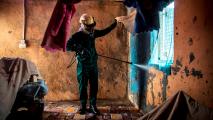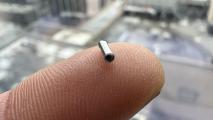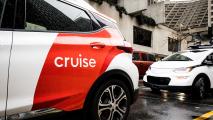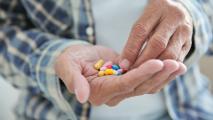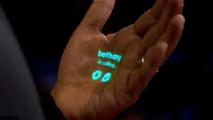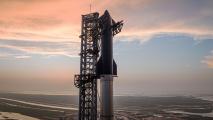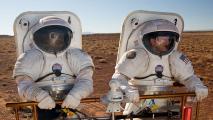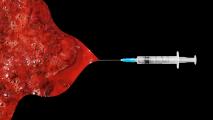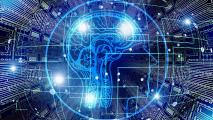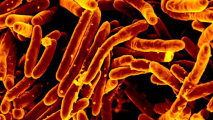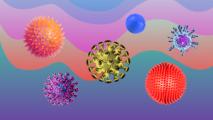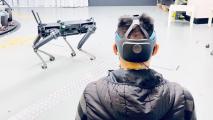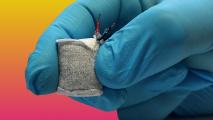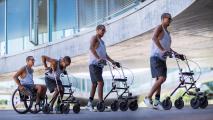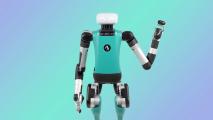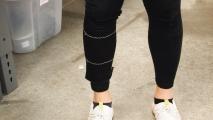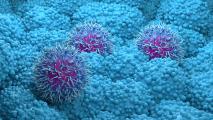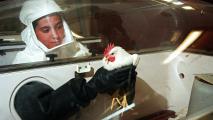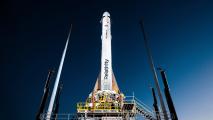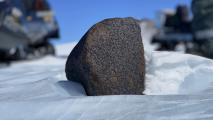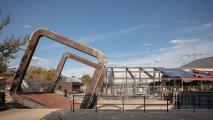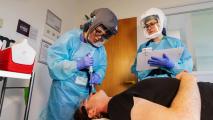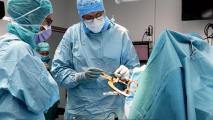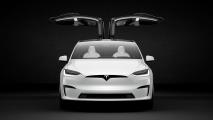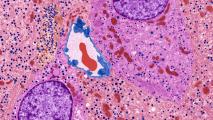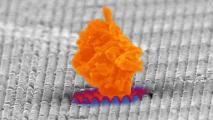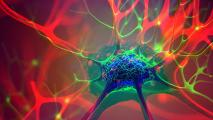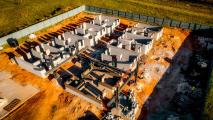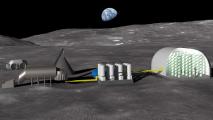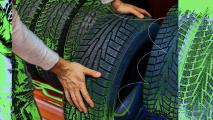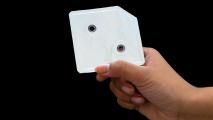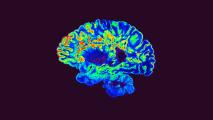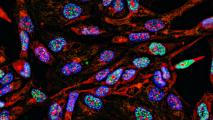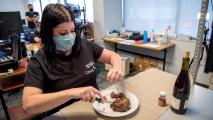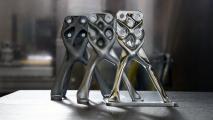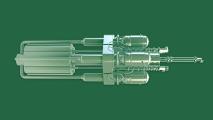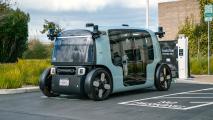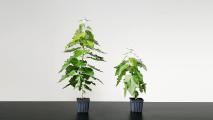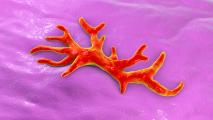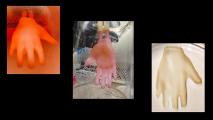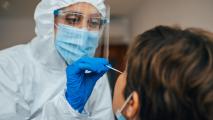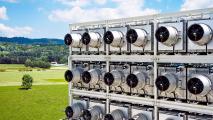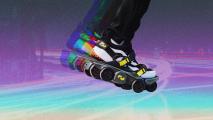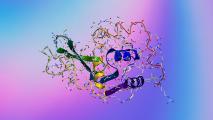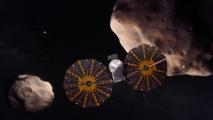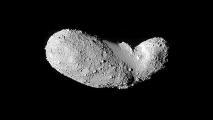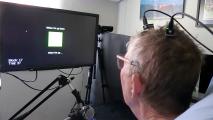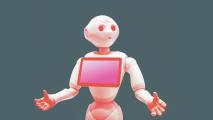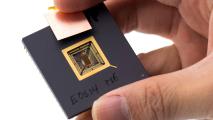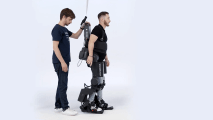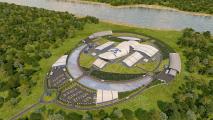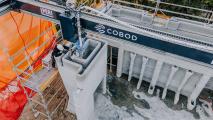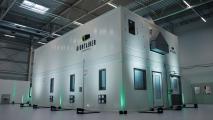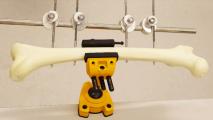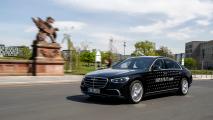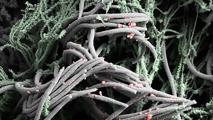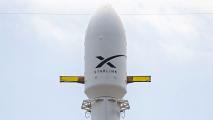Status: Featured
To promote content in various display modules across the site
Two African countries first to approve Oxford’s malaria vaccine, with 20 million doses on the way
Ghana and Nigeria have become the first two nations to approve Oxford’s vaccine against malaria.
Hollow “seed” shrinks cancerous tumors from the inside
A new drug delivery system for pancreatic tumors could dramatically decrease medication dosages, helping minimize unpleasant side effects.
Cruise driverless cars can now operate 24/7 across San Francisco
GM-backed Cruise has announced that it can now operate its driverless car service 24/7 in San Francisco.
Dementia patients are “rallying” just before death. Scientists want to know why.
New research into terminal lucidity could revolutionize our understanding of dementia — and maybe even give us a way to reverse it.
Alzheimer’s disease: an illness that needs a long overdue cocktail
Scientists are starting to agree that the "holy grail" solution for Alzheimer's is more likely to be a drug cocktail than a single treatment.
Alternative funeral options are changing how we honor our dead
A small, yet growing number of people are starting to choose funeral options outside traditional burial or cremation.
Killing this toxic invasive species could help fix the climate
A robot from Seaweed Generation will drag chunks of sargassum 200 meters deep until they burst and die.
Is this secretive device the “iPhone killer”?
Thanks to a leaked video from a TED presentation, we now have our first glimpse at secretive startup Humane’s wearable tech.
First Starship launch ends with a massive explosion
During SpaceX’s first Starship launch attempt, the massive spacecraft made it off the pad, but exploded before reaching space.
Nurses are breaking the mold to set out on their own
Tech platform Hydreight wants to help nurses go into business for themselves by being a turnkey solution.
“Nanosyringes” can inject medicine into a single cell
MIT researchers have turned a system found in bacteria into programmable “nanosyringes” for injecting proteins into human cells.
See inside NASA’s simulated Mars base for the first time
NASA has unveiled Mars Dune Alpha, a simulated Mars base where volunteers will live like Mars astronauts for a year at a time.
Scientists want to dump iron nanoparticles into the oceans to save the planet
Engineered nanoparticles could make ocean fertilization a viable weapon in the battle against climate change.
How ChatGPT “jailbreakers” are turning off the AI’s safety switch
Through clever prompts, OpenAI's red team and public "jailbreakers" are revealing the holes in GPT-4's guardrails.
One shot could stop severe bleeding and save thousands of lives
A potentially lifesaving treatment to stop severe postpartum hemorrhage could soon be more accessible to the people who need it the most.
AI chatbots don’t actually “know” anything. Can we fix that?
New AI models, called ALMs, could help chatbots stay connected to reality.
New battery tech boosts EV range by 20%
A new silicon anode material for EV batteries can boost a vehicle’s range by 20% while cutting down on charging times.
Xwing puts autonomous flight on the runway to approval
Autonomous flight startup Xwing has filed for approval to do crewless cargo flights, a first step towards pilotless commercial aviation.
You can now explore the highest-res map of Mars ever made
Caltech researchers have created an interactive map of Mars that lets anyone explore the surface of the Red Planet in unprecedented detail.
Tuberculosis kills over a million people a year. New breakthroughs may help humanity fight back.
The world needs a tuberculosis vaccine, but the challenge trials that could help are impossible to run. Two new approaches look to change that.
Space could be a trillion dollar industry by 2040
Now that falling launch costs are making space more accessible, hundreds of groups are looking for ways to make money off-world.
Excel may make chatbots much more useful
Math and logic are a weakness for chatbot AIs like GPT-4. Access to Excel may help change that.
Viruses cause 200+ diseases. This one drug may be able to treat them all.
New Zealand-based startup Kimer Med wants to create an antiviral that would be effective against many known viruses — and unknown.
Graphene sensor could let you control robots with your mind
The “wonder material” graphene has been used to develop a dry sensor that could enable anyone to control technology with their minds.
ChatGPT can now help you plan a perfect vacation
Online travel agency Expedia has added ChatGPT to its app, giving users a free AI assistant to help them plan a vacation.
Sugar-powered implant produces insulin as needed
A sugar-powered implant that produces insulin when blood glucose levels are high could make managing diabetes easier and less painful.
How close are we to reversing paralysis?
Thanks to groundbreaking innovations in neuroscience, we’re seeing that forms of paralysis long assumed to be permanent can be reversed.
Humanoid robot Digit finally gets a head and hands
The newest version of Agility Robotics’ humanoid robot Digit has new body parts designed to make it more useful in workplaces.
A new AI lie detector reveals their “inner thoughts”
A new AI lie detector can dive into their hidden thoughts and reveal “what language models truly believe about the world.”
NASA funds first wearable to measure muscle atrophy
The first wearable designed to monitor muscle atrophy could help NASA astronauts stay strong during long space missions.
Have scientists found a “brake pedal” for aging?
A new protein discovery may have highlighted a "switch" in brain cells that slows down inflammation and aging.
Spread of deadly cancer delayed by organ transplant drug
A groundbreaking discovery on how pancreatic cancer spreads could lead to better therapies for the hard-to-treat disease.
United Airlines plans to bring flying cars to Chicago
United Airlines plans to use flying cars to ferry passengers between O’Hare International Airport and a location near downtown Chicago.
The tech of the year is entering the workforce
Generative AIs are being integrated into the programs millions of people use at work, but will they really make our jobs easier?
Bird flu is everywhere. Are the vaccines ready?
As avian influenza continues to devastate the bird population and jump into mammals, scientists are preparing to protect two important groups.
World’s first 3D-printed rocket launches at Cape Canaveral
Relativity Space has just launched the world’s first 3D-printed rocket, Terran 1, but the flight didn’t go exactly as hoped.
“Treasure map” guides scientists to massive meteorite
A “treasure map” highlighting places where meteorites are most likely to be found has led to the discovery of a 17-pound space rock.
Venus may have currently active volcanoes
Old images from NASA’s Magellan mission may have revealed that Venus, a close analogue to Earth, has volcanic activity.
Watch: London’s “rolling bridge”
London’s unique Cody Dock “rolling bridge” can be moved by hand winches.
New voice cloning AI lets “you” speak multiple languages
Voice cloning AIs are gaining more abilities, while the amount of audio needed to replicate a person’s voice is shrinking.
GPT-4 is surprisingly good at explaining jokes
OpenAI's latest language model can grasp visual jokes, too.
How Stripe is using GPT-4 to fight fraud
Stripe has incorporated OpenAI’s large language model GPT-4 into their business.
Microsoft unveils AI Copilot for its 365 apps
Microsoft has just unveiled Copilot, a new AI-based tool for its Microsoft 365 apps, including Word, Excel, and PowerPoint.
You can run this text-generating AI on your own devices, no giant servers needed
By fine-tuning a large language model, Stanford researchers have created a text-generating AI you can run for a fraction of the price.
OpenAI just launched GPT-4 — and you may already be using it
Just four months after releasing ChatGPT, OpenAI has already upgraded its hugely popular chatbot with a new AI model.
First healthy mice with two dads — and no moms — born in Japan
For the first time, scientists have created healthy, fertile mouse pups using only the DNA of two adult males.
New material traps CO2 — and turns it into baking soda
A new material for direct air capture systems turns trapped carbon into baking soda when introduced to seawater.
A single injection of stem cells slashes risk of heart attack or stroke by 58%
An injection of stem cells reduced the risk of heart attack or stroke by 58% in a trial of people with heart failure.
Volunteers were purposefully infected with COVID-19. Was it worth it?
It has been a year since the first COVID human challenge data was published. What did we learn, and can HCTs prepare us for the future?
Scientists inject stem cells into the brain of Parkinson’s patient
A new stem cell therapy for Parkinson’s disease has just been administered to the brain of a person for the first time.
LA’s on-demand vans charge just $1 per ride
Los Angeles has launched Metro Micro, an on-demand public transportation service that charges just $1 per ride.
Tesla switches to motors without rare earth elements
Tesla’s future powertrains won’t contain rare earth elements, which are mined primarily in China using environmentally destructive methods.
New transplant technique cures type 1 diabetes in monkeys
Massachusetts General researchers have developed a new form of transplantation that cured type 1 diabetes in monkeys.
New anti-dust tech could solve this major problem for NASA
A new anti-dust technology could extend the lives of space rovers, improve the efficiency of solar panels, and more.
New 3D bioprinter could repair organs inside the human body
A snake-like soft robot designed to 3D bioprint tissues inside patients’ bodies might one day replace invasive implantation surgeries.
This incredibly life-like robot hand can be made for just $2,800
Low-cost robots that perfectly mimic parts of the human body foreshadow a future in which humanoid robots do all the work people don't want.
Cyborg fish grow electrodes in their brains and fins
A gel that turns into an electrode once inside the body might end the need for invasive implantation surgeries.
Breakthrough study discovers that psychedelics breach our neurons
Researchers have discovered that psychedelics can activate 5-HT2A receptors inside of cortical neurons, a possible cause of their therapeutic effects.
World’s largest 3D-printed affordable housing project launches in Kenya
Construction of the world’s largest 3D-printed affordable housing development is underway, with the first 10 houses going up in just 10 weeks.
ESA thinks we can grow hydroponic gardens on the moon
ESA is researching how to pull valuable nutrients from lunar regolith so that future astronauts can use them in hydroponic gardens.
Goodyear announces 90% sustainable tire
Made from a variety of recycled and repurposed materials, the tire may be perfectly suited for electric vehicles.
Psychedelics are helping dying patients overcome their existential distress
End of life patients face existential and spiritual challenges other patients do not. Psychedelics may be uniquely suited to helping them.
These 3D-printed batteries could be the future of clean energy
Silicon Valley startup Sakuu has developed a 3D-printing platform that it says can mass produce solid-state batteries, in any shape and size
New MS treatment targets the gut microbiome
We may be able to prevent chronic inflammation in multiple sclerosis patients by manipulating their gut microbiomes.
Inhaling this powder shields lungs from infection
An inhalable powder that acts as an “invisible mask” for the lungs could potentially help end the COVID-19 pandemic.
New light therapy could make cancer treatment better and safer
A new light-activated cancer treatment developed in the UK could make existing therapies better and safer.
First: Spinal cord stimulation helps stroke survivors control arms again
Spinal cord stimulation has been shown to improve upper-limb mobility in stroke survivors for the first time.
NASA’s new balloon-borne telescope was designed with AI
An AI-powered technique called “generative design” is helping NASA engineers design better hardware, more quickly.
These “microreactors” could be the future of nuclear power
Microreactors that can be built and deployed much faster than traditional nuclear power plants could be the future of nuclear energy
Zoox deploys first-of-their-kind robotaxis in California
Amazon subsidiary Zoox hits a new milestone, transporting passengers in its driverless robotaxis on open public roads.
Startup plants first GMO trees designed for carbon removal
Living Carbon is ready to begin planting thousands of GMO trees engineered to pull 27% more carbon from the air.
This tiny device lets you see your heart while exercising
A new wearable heart monitor powered by AI provides accurate and continuous measurements of cardiac performance at all times.
DMT therapy appears effective for depression in phase 2 clinical trial
London-based Small Pharma has released positive top-line results for their phase 2a trial of DMT as an antidepressant.
“Brain-eating” amoeba beaten by old European drug
A man infected by a deadly brain-eating amoeba is on the road to recovery thanks to a decades-old drug used to treat urinary tract infections.
Skin grafts can now be 3D-printed to fit “like a glove”
Bioprinted skin grafts come in sheets, not the contours of the body. New research from Columbia envisions grafts which fit like a glove.
AI is helping decode the oldest story in the world
A new algorithm is helping decode ancient cuneiform tablets — including those containing the oldest known work of world literature.
World’s largest electric cargo plane can carry up to 400 pounds
The Pelican is an autonomous electric cargo plane capable of transporting 400 pounds of cargo 200 miles in less than three hours.
Google announces Bard, a ChatGPT-like AI (Updated)
Google has announced Bard, a conversational AI similar to ChatGPT, and plans to integrate similar AI into its search platform “soon.”
Yale researchers have found a way to spot new viruses
By screening negative nasal swabs for a specific antiviral protein, a Yale team believes we may be able to find hidden viruses before they emerge.
World’s biggest direct air capture plant is trapping CO2 in Iceland
Direct air capture technology is starting to take off, with ever-larger CO2 removal facilities opening across the globe.
World’s fastest “shoes” increase walking speed by 250%
Shift Robotics is taking pre-orders on Moonwalkers — $1,400 “shoes” that let you walk 2.5x faster without expending any extra energy.
ChatGPT-like AI creates new bacteria-killing proteins
Using a large language model AI, biotech startup Profluent has created new antimicrobial proteins.
mRNA could train our blood cells to stop chronic inflammation
A new study has identified the substance used by our white blood cells to reduce inflammation when it is no longer needed.
NASA’s “Lucy” will take a 40,000-mile detour to visit this asteroid
NASA has added a tenth asteroid flyby to the record-breaking Lucy mission so that it can test a new asteroid-tracking system.
This near-Earth asteroid is 4.2 billion years old and nearly indestructible
By analyzing just three dust particles, researchers learned that the rubble pile asteroid Itokawa is 4.2 billion years old and hard to kill.
New brain implant breaks record for turning thoughts into text
Stanford researchers have developed a brain-computer interface that allowed a woman to “type” 62 words per minute using only her thoughts.
In Japan, humanoid robots could soon become part of the family
More than any other nation, Japan tends to feel comfortable with the idea of humanoid robots entering the home.
An open-source option is shaking up the microchip industry
The RISC-V architecture for microchips is transitioning from a novelty to a major player in the tech world.
First-of-its-kind exoskeleton for stroke rehab cleared by FDA
The FDA has cleared Wandercraft's self-balancing, hands-free Atalante exoskeleton for use during stroke rehab.
First small modular nuclear reactor certified in US
The US’s first certification of a small modular reactor design could lead to cheaper, safer nuclear power plants.
Autonomous race cars go head-to-head, break records in Las Vegas
Autonomous race cars took to the track at CES, opening new forms of competition and setting speed records.
Two-story 3D-printed house is first of its kind in the US
The US’s first two-story 3D-printed house is being built in Houston, Texas, from a mix of concrete and wood.
New mRNA vaccine factory is made from shipping containers
BioNTech is sending a modular mRNA vaccine factory that can produce 50 million COVID-19 vaccines annually to Africa.
Treating broken bones in war zones made easier with low-cost device
The device performs similarly to its commercial counterparts but costs one-tenth the price.
NASA announces alien-hunting Habitable Worlds Observatory
NASA has announced that it is developing the Habitable Worlds Observatory, a new space telescope optimized to hunt for extraterrestrial life.
Mercedes-Benz wins race to bring Level 3 autonomous cars to US
Mercedes-Benz has permission to deploy its Level 3 autonomous driving system, DRIVE PILOT, in Nevada, and California could soon follow.
World’s largest plane sets new flight record
A new test flight puts the world’s largest plane one step closer to helping the US develop — and respond to — hypersonic weapons.
Stanford nasal study could lead to “morning after” virus spray
A “morning after” antiviral nasal spray could be created using new knowledge about how SARS-CoV-2 invades your nose.
SpaceX puts Starlink promises to astronomers in writing
SpaceX has signed an agreement with the National Science Foundation detailing its plans to minimize Starlink’s impact on astronomy.
